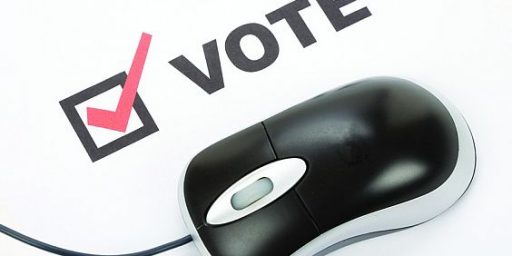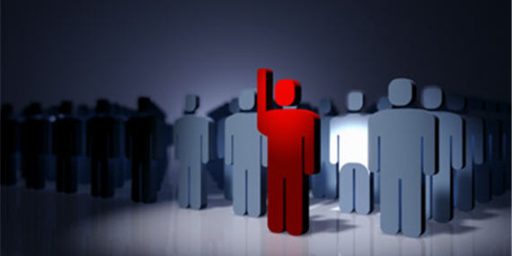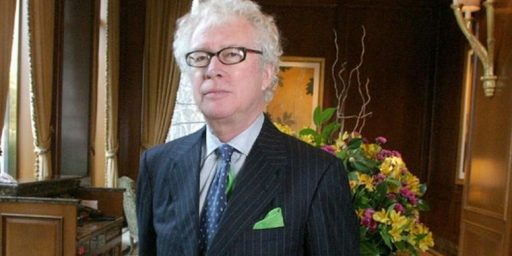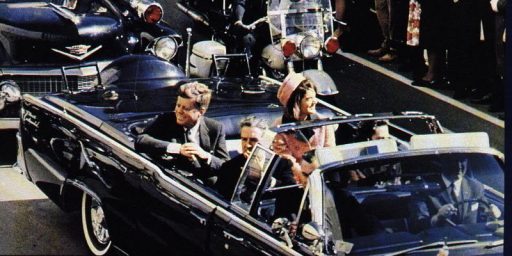Case for Online Polls
Humphrey Taylor, the chairman of the Harris Poll, offers a plausible defense of online polling. Mark Blumenthal has a superb critique.
Ultimately, they’re saying the same thing: online polls have not yet proven that they are as reliable as telephone surveys but there is evidence that, properly conducted, they can be useful. Both agree that telephone surveys, because of declining response rates and some demographic concerns, may lose their status as the primary polling method in the not-too-distant future.
Because my wife works in the business, I talk to some of the best pollsters out there on occasion. While they’re generally fearful that cell phones and hangups will eventually put them out of business–or at least force them to fundamentally rethink the way they operate–that concern is purely theoretical at this point. Recent election polling using proper likely voter screens have continued to be uncannily accurate.
Incidentally, Taylor is the author of a 1998 essay, “Myth and Reality in Reporting Sampling Error: How the Media Confuse and Mislead Readers and Viewers,” that I frequently assigned my Intro to Poli-Sci students back in my teaching days. It’s still worth a read.






It would be wise for pollsters to make their phone numbers visible to caller ID. Rarely do I answer my home phone when the caller comes up “toll free”, “out of area”, or “private.” I dont mind talking to pollsters, but not the non-profits that make it through no-call listing.